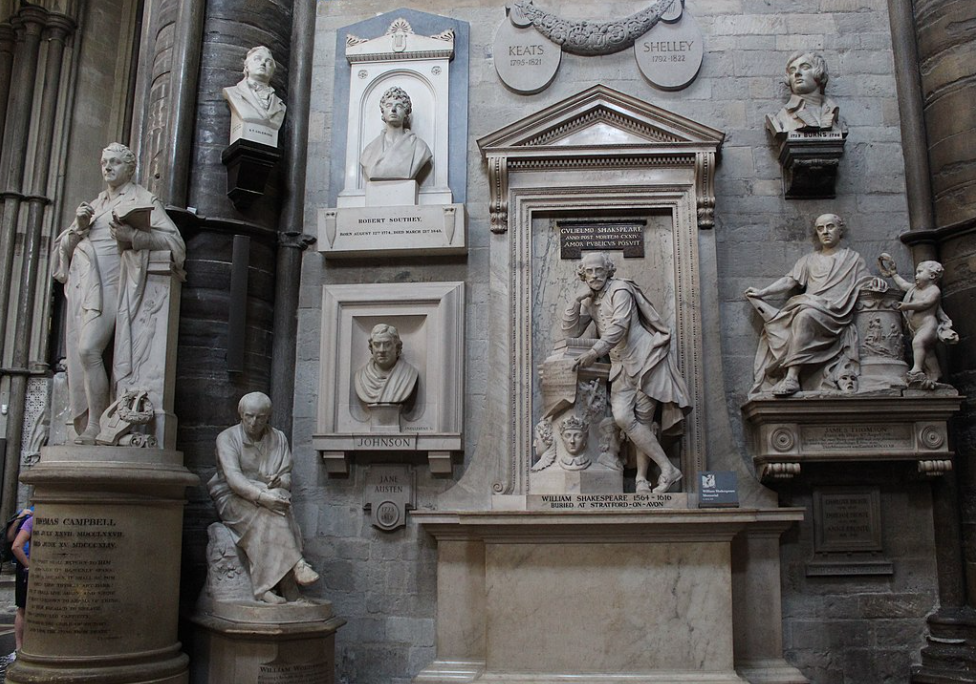My family and I spent the past several days in England, coming for the ordination service of our friend, Father Calvin Robinson, who has arguably emerged as the most articulate voice for orthodox Christianity in our time.
It was a wonderfully transcendent ceremony, the stuff of dreams for a years-long C.S. Lewis devotee like myself, which took place in a 19th-century structure with pews of worn dark wood and French gothic windows, some of which were of stained glass.
The service was somber, with dim lighting and muffled voices, full of instruction by the bishop, as well as vows by the candidate to live up to his high calling. Then, suddenly at the end, just as Deacon Robinson became Father Calvin Robinson, the mood lifted, as outside the sun slipped out from the clouds, sending a beam of light through the Gothic windows so glorious it was as though carried on the wings of Saint Michael himself.
As I said, the service was holy and delightful. Nevertheless, my fondness for the ordinand notwithstanding, I had not wanted to come to England. I wanted to go to France instead.
I don’t want to hurt Father Calvin’s feelings, but what did the UK have that could compare to the Mona Lisa of the Louvre, or the endless Van Goghs of the Musée D’Orsay, not to mention Montmartre and the Church of the Sacré-Coeur, the Lascaux cave paintings of the Dordogne, Monet’s gardens, foie gras, steak frites, or profiteroles?
Well, a good deal, as it happens, though, at least for the purpose of this article, nothing so much as the word.
This fact was slow to reveal itself and confusing at best. There was a strange twinkle in the eye of the statue of Sherlock Holmes, as we walked about the city on that first day, and the nightingale that perched on the statue of John Keats looked right at me and started to sing. The door of the Rudyard Kipling building swung open with no help from anyone that I could see, and as we toured Tavistock Square, I could’ve sworn that the bust of Virginia Woolf glowed briefly like a lighthouse shining through the deepest dark of the British night.
My head was spinning by the time we made it to Westminster Abbey, so what turned into an innocent tour became a kind of Carrollian tumble into the rabbit hole as, after growing disoriented somewhere between the entrance to the nave and the High Altar, I looked up to see a sign that said: “Poet’s Corner.” And there, gathered like the august deities on Mount Olympus, were the gravestones that read Dryden, Shakespeare, Disraeli, Dickens, as well as many more.
I’m not sure how I missed it, but it’s true. Whereas France may be a kind of living museum when it comes to art and other elements of culture, nothing can compare to the Brits when it comes to the written word.
As I gave over to this realization, I was quick to make up for it by going to the Dickens Museum, the Churchill War Rooms, and many other literary venues. In fact, the successes of the word in Britain were of such a scale, that I couldn’t help but ask what was so special about the English word.
To me it comes down to this: The English word gets its strength from The Word.
It’s the “Word made flesh” that gives it life, causes it to cut through the consciousness with the stab of truth. It can do this because of the Logos, God’s word in human form to all of humanity. For it is the Logos that ensures the words written throughout England’s great history have meaning, because, through the doctrine of the Trinity, they can be traced back to the Deity himself.
In short, because the world was created in a rational way by a rational God, we can have confidence that our own observations and the words that describe them are real. This richness of meaning assisted Chaucer, Spenser, Donne, Milton, and Shakespeare, and also benefited Churchill during the darkest days of World War II. London’s architecture, with its spires and stained glass, gives testimony to this fact, as does a survey of English literature. In all my fixation on French high culture, I had missed it somehow.
I vow never to do so again, and I hope the leaders of the United Kingdom will think of this, too, as their country, like our own, faces such difficult and trying times. Because the word isn’t nearly so powerful without The Word to give it ultimate meaning. It was there for Chaucer and Churchill, and it will be there for England again if they will only allow it.
I’m glad we exchanged our flight tickets from France to England, and I want to thank Father Robinson for the opportunity to witness such a wonderful ceremony. But I owe him another debt of gratitude. For it was on this trip that I discovered once again, and hopefully this time for all time, that England is the land of the Eternal Word.
Along with his father, Allen Keller runs a lumber business in Stevenson, Alabama. He has a Ph.D. in Creative Writing from Florida State University and an MBA from University of Virginia. He can be reached for comment at allen@kellerlumber.net.
The views and opinions expressed here are those of the author and do not necessarily reflect the policy or position of 1819 News.
Don't miss out! Subscribe to our newsletter and get our top stories every weekday morning.










